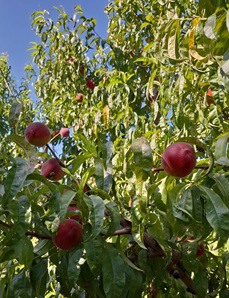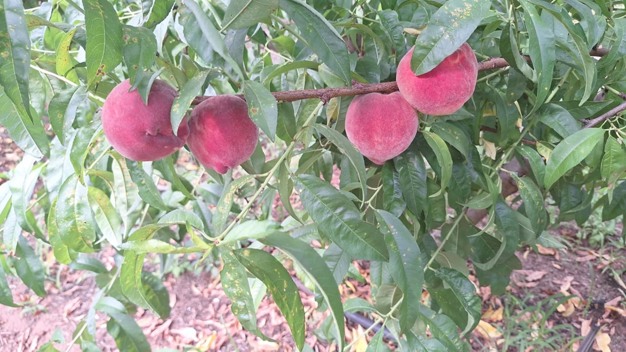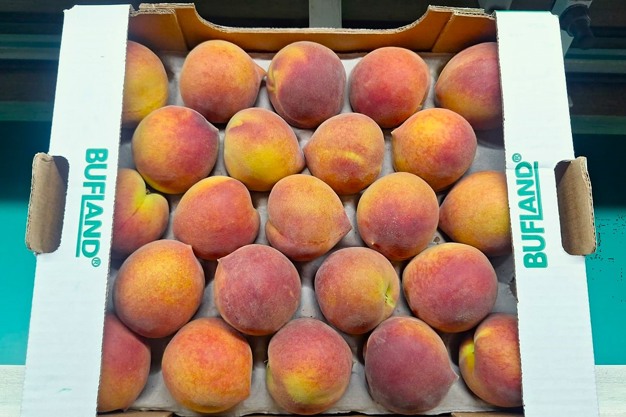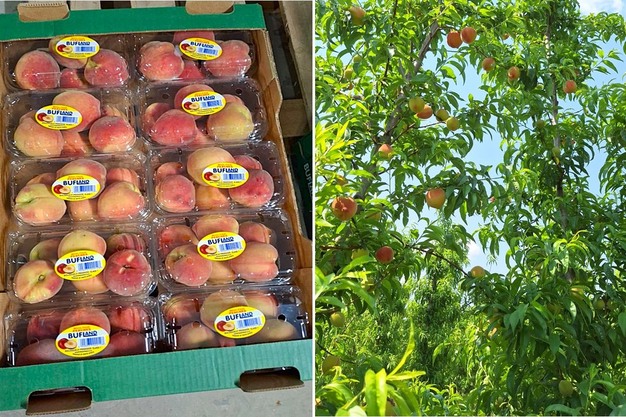 In the Waterberge of Limpopo Bufland Agri's earliest stone fruit fell victim to the extreme frost event of July which killed the blossoms: one early cultivar in full-bloom lost its whole crop.
In the Waterberge of Limpopo Bufland Agri's earliest stone fruit fell victim to the extreme frost event of July which killed the blossoms: one early cultivar in full-bloom lost its whole crop.
Right: harvest of the early dessert peach Temptation has commenced
Temperature loggers at various points on the farm showed the variability of the terrain and therefore of temperatures here in the Waterberg Biosphere, a protected nature reserve, famed for its clean water and animal life. On some parts of the farm, says Leon Eksteen, Bufland Agri director, temperatures dropped to -6°C while elsewhere, monitoring -1°C on the same day.
Some have called this frost event, very widely felt,the coldest weather the Bushveld has experienced in about 30 years.
At Bufland they lost, Eksteen estimates, between 10% and 15% of their peaches and nectarines. Usually their harvest gets going by the last week of September or early October, but this year large volumes will only be packed from around 10 October.

Smooth change-over to Southern Hemisphere stonefruit expected
Their orchards are predominantly South African-bred varieties and some Zaiger varieties, all suited to their usually wild winter and wet summers in an entirely different cultivar mix to what would be planted in a Western Cape orchard.
Bufland flies out its stonefruit – only peaches and nectarines; plums just don't thrive in their microclimate – to the Africa, UK, Europe and the Middle East.
In the UK and Europe, where most of the fruit goes, it seems the buyers, mostly supermarket pre-packers, will be ready to switch over to Southern Hemisphere peaches and nectarines by early October.

South African supermarkets are also supplied with peaches and nectarines by Bufland. 'BUFLAND' is a familiar name on the municipal markets of Johannesburg, Pretoria and Springs in Gauteng, and Durban and Pietermaritzburg in KwaZulu-Natal.
The Bufland Group is a diversified enterprise with citrus during winter, cereal crops like sugarbeans and maize (corn), wheat and potatoes in summer, as well as cattle breeding. Located within the Waterberg Biosphere, strict pollution controls are in place but fortunately, Eksteen remarks, there are no mining activities and consequently, he says, their water is as pure as can be.

 For more information:
For more information:
Leon Eksteen
Bufland Agri (Pty) Ltd
https://www.buflandagri.com
